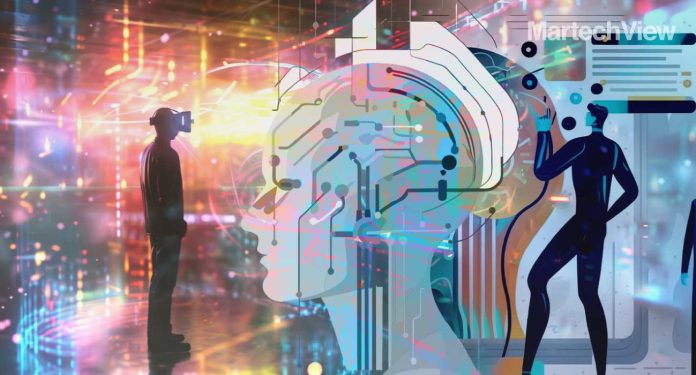Unleash the power of AI! Explore how AI transforms marketing, customer experience, and business operations across industries. Discover the benefits, applications, and responsible use of AI for future-proof growth.
In today’s tech-driven world, integrating AI into daily work tasks has become inevitable, regardless of the market. The fact that such technology saves time and effort is not the only factor that makes it appealing to the general public. It can also offer a personalized experience, such as Spotify’s curated playlists and Amazon’s tailored shopping experiences.
When it comes to work by marcom specialists, the application of AI is a bit different. AI has shifted from broad, generalized communication strategies to more nuanced, data-driven, and personalized interactions with target audiences, enabling brands to craft very specific target messages. AI’s transformative influence continues across diverse sectors, with Grand View Research reporting an anticipated annual expansion of 37.3% from 2023 to 2030. This substantial growth underscores the escalating significance of AI technologies in the upcoming years, highlighting their ever-widening impact.
The potential of AI is vast, and organizations can harness it in several ways. In a survey conducted by Vistage, which involved 1,467 SME business leaders, 13.6% of respondents reported the current use of AI in their operations. More specifically, 6.9% utilize AI for internal business functions, and 6.1% incorporate it into client interactions. Let’s explore how AI can be used:
Predictive Analytics and Consumer Insights
Brands increasingly rely on AI-driven analytics to gain deeper insights, match their offerings to customers’ needs, and pinpoint areas for enhancement. The ability to quickly process vast datasets empowers brands to understand what customers seek and spot emerging trends.
By analyzing consumer behavior and preferences, decision-makers can offer products/services that cater to the targeted audience’s needs. The rise in sales and achievement of business targets directly result from understanding these preferences.
AI in Marketing and Advertising Strategies
Recent research by McKinsey & Co. found that up to a fifth of the tasks performed by marketing and sales teams could be automated. AI has become an essential tool in content creation, with ChatGPT being a prime example of a valuable asset for content creators today.
Moreover, AI-driven algorithms can enhance ad targeting, ensuring that promotional content reaches the right audience at the optimal time. According to the 2023 AI Marketing Benchmarking Report, 61.4% of marketers have already adopted AI or plan to do so, with 41.4% using it specifically for content marketing.
Customer Experience Improvement
Another way to integrate AI for better business outcomes is through chatbots and virtual assistants, facilitating immediate and personalized interactions, thus improving the overall customer experience.
A satisfactory customer experience is a unique selling point that enables brands to stand out from the rest of the crowd and simplifies customer retention. It’s important to remember that a satisfied customer is less likely to switch to a competitor.
Also Read: The Future of Retail is AI: Personalized, Efficient, and Customer-Centric
With that being said, it should not be taken for granted that employees will be able to leverage AI effectively. A thoughtful approach to technology integration is needed. Hence, businesses must provide the necessary tools and training to enable employees to make the most of these technologies.
In conclusion, integrating AI into various business operations represents a passing trend and a fundamental shift in how companies engage with their audiences and bolster their bottom lines. Although this technology is widely discussed and explored, businesses and individuals must adopt a responsible approach to its use.










